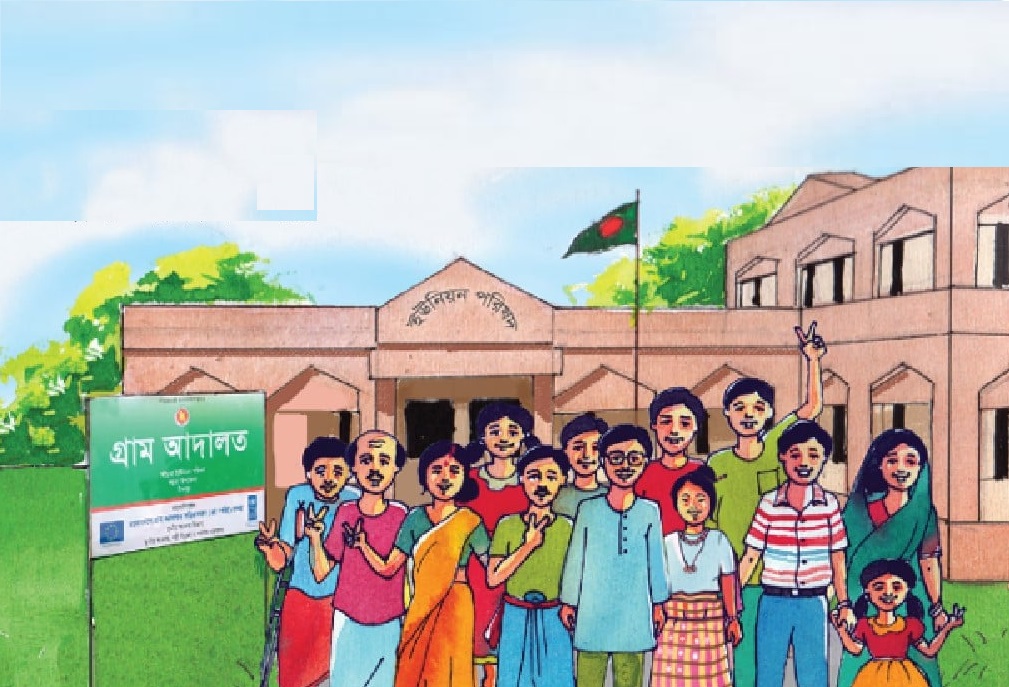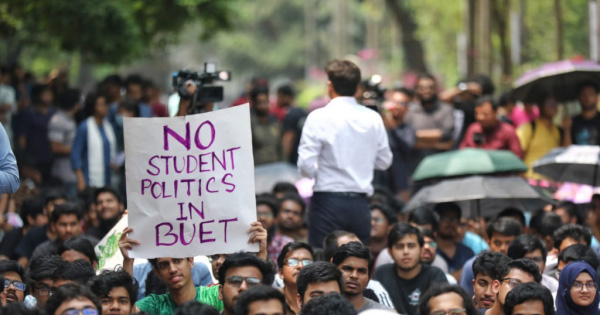The ongoing surge in essential food prices in Bangladesh is pushing the country’s most vulnerable citizens to the brink of despair. In places like the “Gorib er Bazar” in Dhaka, where the poorest of the poor go to buy salvaged and damaged goods at a fraction of the regular price, the cost of survival has become unbearably steep. A basic staple like coarse rice, which once sold for Tk30 per kg, now costs Tk50, a staggering increase that hits low-income families the hardest. The government’s failure to control these prices or offer meaningful relief is not just a policy oversight—it is a dereliction of duty.
The rise in food prices is nothing short of a crisis for millions of people living on the margins of society. For individuals like Nurunnahar, a house help earning just Tk5,000 a month, the price hike has made it impossible to send money back to her children in her ancestral village. With soybean oil reaching Tk200 per liter, she has resorted to cooking without oil altogether. Others, like Kulsum Begum, who recently gave birth, have been forced to cut back on essential baby food such as milk and eggs. This is not merely an inconvenience—it’s a slow erosion of nutrition and well-being for entire families. The government’s lack of action in controlling these skyrocketing prices reflects a disconnect with the realities faced by millions of its citizens. Instead of implementing policies to protect consumers from inflation, or at least subsidizing basic goods during a period of such intense economic strain, the government has allowed prices to spiral out of control. The impact is disproportionately devastating for the working poor.
Markets like “Gorib er Bazar” are meant to offer a lifeline to those who cannot afford to shop elsewhere, yet even here, traders and buyers alike are suffering. Taslima Akhter, a vendor in the market, now struggles to maintain her meager profit margins. What used to be sold as Tk10 mini-packs of oil now costs Tk20 due to rising input costs. Even lentils and spices, once affordable at Tk10, have been subject to “shrinkflation,” where portions are reduced to maintain price points. These measures are not sustainable for sellers or buyers and indicate a severe structural issue in price management. Meanwhile, sellers like Sultana Begum, who has been selling chicken for eight years, report slumping sales as families forgo protein in favor of less costly, but less nutritious, meals. A kilo of chicken at Tk160 might seem affordable in comparison to other meats, but when oil and spices are unaffordable, even basic cooking becomes out of reach for many. Sultana’s daily sales have halved, a stark indicator of how purchasing power has eroded under the government’s watch.
What makes this situation even more egregious is the government’s apparent indifference to the plight of its people. The administration’s inability to control inflation, particularly for essential goods like rice, oil, and flour, demonstrates a complete lack of foresight and planning. Subsidized sales of essential goods, a lifeline for many in times of crisis, have been inexplicably paused, leaving low-income families without any safety net. While global economic pressures and supply chain issues have certainly played a role, the government has failed to cushion the blow. The lack of effective intervention—be it through price controls, subsidies, or more robust food distribution programs—has left the most vulnerable populations at the mercy of market forces that they are ill-equipped to navigate.
The situation is perhaps most dire when it comes to access to protein. For families like Monir Hossain’s, whose monthly income of Tk15,000 barely covers rent, the luxury of chicken—previously a twice-monthly indulgence—has been reduced to a rare treat. Families are being forced to make impossible choices between food, rent, and medical expenses. This not only deepens poverty but also has long-term consequences on public health, particularly for children who are being deprived of adequate nutrition during critical stages of development. Even fish, traditionally a more affordable source of protein, has become inaccessible to many. Mohammad Farhad, a fish seller, notes a significant drop in sales, as fewer people can afford even the relatively cheaper fish varieties like tilapia. This reduction in consumption points to a deeper economic malaise that the government cannot afford to ignore.
### A Call for Immediate Action
The government of Bangladesh must take immediate and decisive action to mitigate this crisis. The current trajectory is unsustainable, and the repercussions will be severe if left unaddressed. A multi-pronged approach is needed, including:
1. **Price Control Measures**: The government should implement stricter controls on the pricing of essential goods, particularly staples like rice, oil, and protein, to prevent profiteering and hoarding.
2. **Subsidies and Food Assistance**: Resuming and expanding subsidized sales of essential goods, as well as enhancing food assistance programs for low-income families, is crucial in the short term.
3. **Market Regulation**: The government must take steps to regulate markets that serve the poorest citizens, like Gorib er Bazar, ensuring that they remain affordable and accessible.
4. **Public Awareness and Transparency**: The administration must be transparent about the reasons for rising prices and what steps are being taken to address the issue. This includes making clear what external and internal factors are contributing to inflation and how the government is intervening to protect citizens.
### Conclusion
The rising cost of living, exacerbated by unchecked inflation and government inaction, is pushing millions of Bangladeshis into deeper poverty and despair. The basic right to affordable food is under threat, and the government’s failure to intervene effectively is not just an economic misstep—it is a moral failing. Without urgent action, the lives and futures of Bangladesh’s most vulnerable citizens will continue to deteriorate, while the very fabric of society unravels under the weight of these unaddressed crises.







